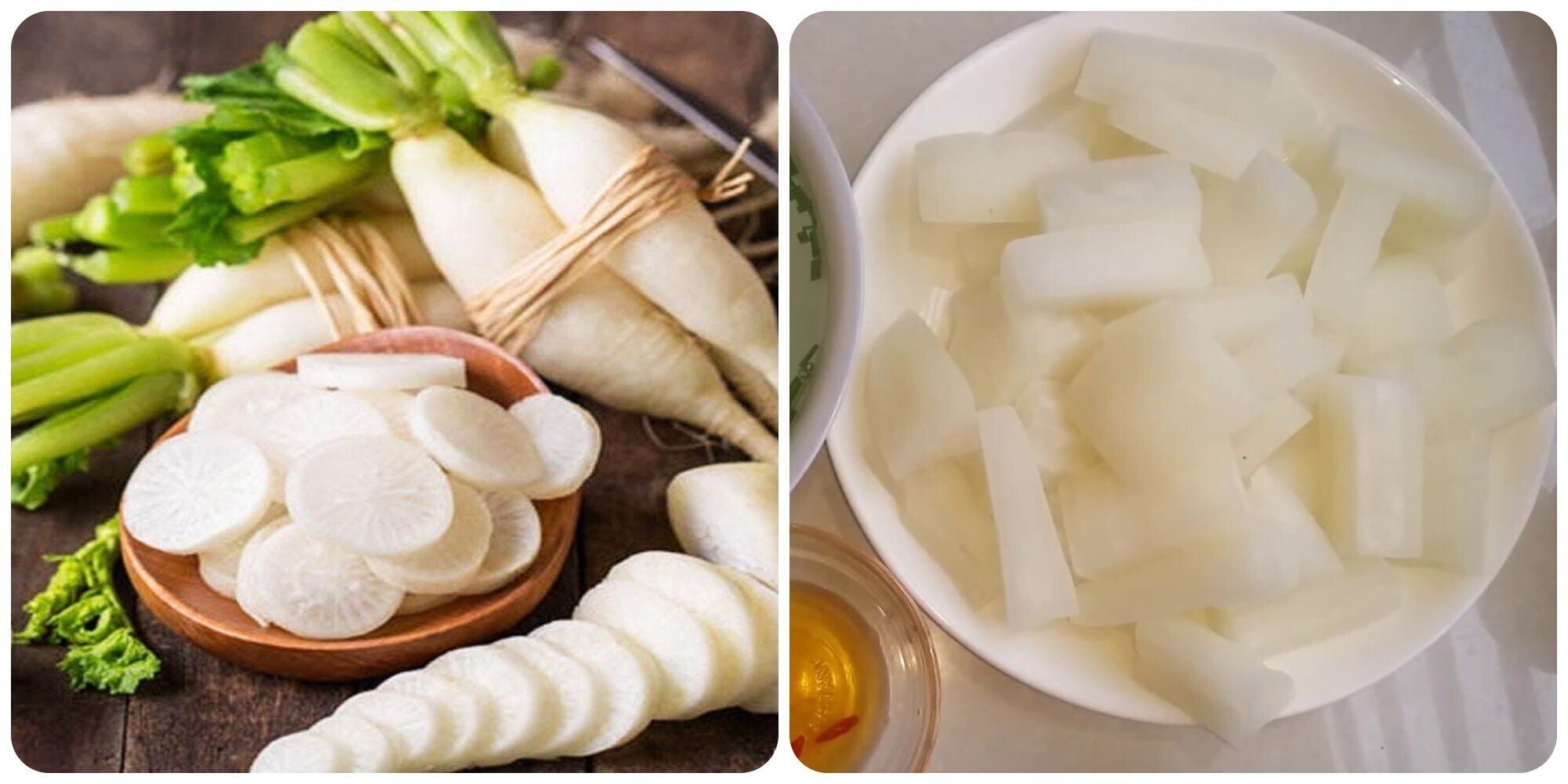People who are 'averse' to radishes
Although radish is good for health, not everyone can eat it. Below are people who are "absolutely not allowed" to eat radish.
Health benefits of radish
Lao Dong newspaper quoted Stylecraze as saying that most parts of the white radish are beneficial for health, including the leaves. Below are 6 health benefits of white radish leaves.
Increase immunity
The high iron content in white radish leaves helps improve fatigue and increase energy. In addition, white radish leaves also contain a lot of vitamin A, vitamin C, phosphorus and thiamine to help increase the body's immunity.
Diuretic
White radish leaf juice plays an important role in diuresis. Not only that, adding radish leaves to your daily diet also has laxative properties that help treat constipation and bloating effectively.
Good for the heart
White radish leaves contain a lot of potassium, which helps control and maintain stable blood pressure levels. In addition, white radish leaves also have the ability to prevent cardiovascular diseases such as atherosclerosis, arrhythmia and stroke.

Prevent cancer
One of the important benefits of white radish leaves is preventing the growth of cancer cells. The reason is that white radish leaves contain many antioxidants. In addition, white radish juice is also good for women's health.
Support treatment of rheumatism
Combine white radish leaf extract with sugar in equal proportions and mix well until it forms a thick mixture. Apply this mixture to the affected joints to effectively improve joint pain.
Prevent diabetes
White radish leaves have properties that reduce blood sugar levels. At the same time, white radish leaf juice also helps prevent type 2 diabetes as well as dangerous complications of this disease.
People who are "averse" to radishes
Although radishes are good, not everyone should eat them. In some cases, eating radishes can cause unwanted side effects, even adversely affect health. VOV Electronic Newspaper quoted News 18 and WebMD as saying that the following groups of people are advised not to eat radishes:
People with digestive problems
Radishes contain sulfur compounds, which can irritate the stomach lining, causing uncomfortable symptoms such as heartburn, abdominal pain, bloating, especially in people with a history of peptic ulcers and gastroesophageal reflux.
Additionally, radishes are high in fiber, which makes your digestive system work harder to break them down. This can lead to gas, bloating, and indigestion, especially when eaten raw or in large quantities.
In case of diarrhea, eating radishes can aggravate the condition due to its laxative effect. People with digestive problems can still eat radishes in moderation after they have been thoroughly cooked. Cooking helps reduce the irritants in radishes. Consult a doctor or nutritionist for specific advice on a diet suitable for your health condition.
People with thyroid disease
Radishes contain goitrogens, which are natural compounds that can interfere with thyroid hormone production. Goitrogens inhibit the absorption of iodine, a mineral essential for thyroid hormone production. When the thyroid gland doesn’t have enough iodine, it has to work harder to compensate, leading to an enlarged thyroid (goiter).
Radishes, especially when eaten raw, contain compounds called isothiocyanates. These substances can reduce the thyroid's ability to absorb iodine, making it difficult for the thyroid gland to produce thyroid hormones. If you are taking medication for your thyroid disease, eating radishes may reduce the effectiveness of the medication or cause unwanted side effects.
Should people with kidney disease eat radishes?
Radishes contain a significant amount of potassium. Potassium is an important mineral for the body, but in people with kidney failure, the kidneys cannot effectively remove excess potassium from the blood. This can lead to hyperkalemia, which can cause symptoms such as muscle weakness, numbness, irregular heartbeat, and even cardiac arrest.
People with kidney disease often need to take multiple medications to control their condition. Radishes can interact with some of these medications, reducing their effectiveness or causing side effects.
Pregnant women
Pregnant women need to be very careful when eating radishes, especially raw radishes. Raw radishes can contain pathogenic bacteria such as E. coli and Salmonella, causing dangerous infections for both mother and baby. In addition, the fiber in radishes can cause bloating, indigestion and increase the risk of uterine contractions.
To ensure safety, pregnant women should limit eating radishes, especially in the first and last 3 months of pregnancy. You should consult your doctor for advice on a suitable diet.
Above are people who should not eat radish. If you are in the above group, stay away from radish.
